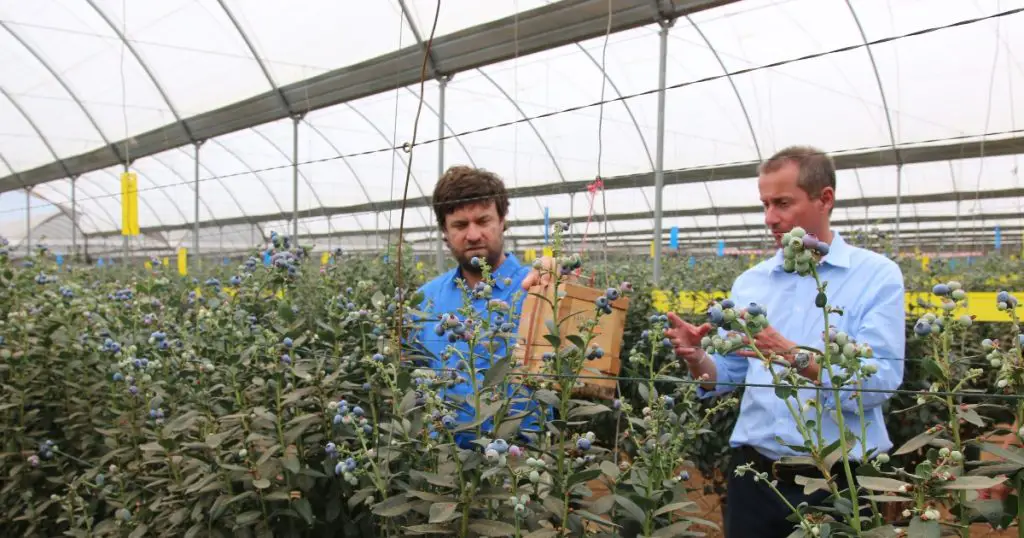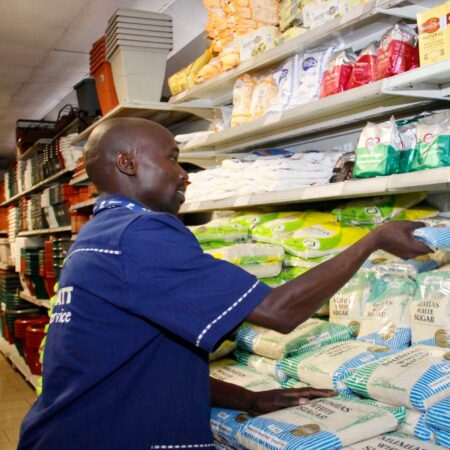- Kakuzi Plc has posted a profit of $6.4 million for the financial year ended 31st December 2022, a 62 percent increase compared to the previous year.
- Total sales revenue amounting to $33 million, up from $24.5 million posted the previous year, boosted by higher production of avocados and additional sales for forestry, livestock, and blueberry produce in the local market.
- Kakuzi shareholders will enjoy an 8 percent per share dividend paid at $0.18 (Sh24)rate as recommended by the board.
Agricultural firm Kakuzi Plc has posted a profit of $6.4 million for the financial year ended 31st December 2022, a 62 percent increase compared to the previous year.
Total sales revenue grew to $33 million up from $24.5 million posted the previous year, boosted by additional sales for forestry, livestock, and blueberry produce in the local market.
Kakuzi shareholders will enjoy an 8 percent per share dividend paid at $0.18 (Sh24) rate as recommended by the board, up from the $0.16 (Sh22) payout the previous year. The enhanced dividends shall be paid on 30th June 2023 to the shareholders on the members register as at the close of business on Wednesday 31st May 2023.
Kakuzi Plc Managing Director Chris Flowers attributed the earnings growth to increased production volumes of quality export-grade Avocado as well as other products experiencing reasonable sales.
“The Kakuzi Plc market and product diversification strategies complimented by the enhanced environment, social and corporate governance commitments are paying off, as the trading results indicate. The diversification efforts help to mitigate market and production risks associated with agri-business. However international market trends will always impact our results,” Flowers said.
Also read: Exports grow on higher agricultural produce in Kenya
China market for Kenyan avocados
As part of the market diversification efforts, Flowers said Kakuzi is gearing to quadruple its export volumes to the Chinese market for its Hass Avocado variety fruit. Last year (2022), Kakuzi became the first commercial exporter of African avocados to China with a shipment of 180 tons of fruit loaded in nine containers of quality export-grade avocados.
“Whilst the Chines volumes are relatively small at the moment, the development of this new market is critical to Kakuzi and Kenya. We will continue to engage trade partners in China, as well as work with the Kenyan authorities to open up new markets for avocados in our quest to grow the Kenyan avocado industry,” Flowers said.
He reiterated the firm’s commitment saying, “Every fruit we export carries the Kenya quality reputation. Both the Europeans and the new Chinese market are demanding high-quality fruit, and that’s got to be our enduring objective; giving our customers a fruit they want more of while sustaining Kenya’s market and brand positioning.”
The company, he said, has invested heavily to ensure compliance with the stringent Chinese market demands, including tree-to-plate traceability protocols.
To sustain production, Kakuzi has also expanded its Avocado orchards by a further 60 hectares, up from 927 hectares at a $919,000 investment cost, to meet the ever-growing demand for quality superfoods globally.
“While the particular focus is on the export markets, we are also focusing on progressive domestic market growth with quality forestry, blueberries, macadamia and livestock products for the retail and wholesale markets.”
Last year, among other achievements, Kakuzi received a global certification confirming that it’s Avocado and Blueberry farming operations adhere to sustainable water resource management approaches. The firm received the GLOBAL G.A.P. “SPRING” Certificate of Conformity, a farm-level certification that helps producers, retailers, and traders demonstrate their commitment to sustainable water management.
As part of its corporate sustainability, Kakuzi has been actively preserving water catchment areas in a strategic bid to stretch the rains for irrigation purposes. Over 20 percent of Kakuzi’s land area is under strict water catchment conservation and preservation.
“The reality of Climate Change can no longer be ignored. If we are going to be able to feed an ever-increasing population, we need sustainable agriculture, including well-managed irrigated agriculture. We must preserve water catchment areas and use water in the most agronomically effective manner possible,” Flowers said.
“To use the word sustainable, we must also recognise that this means ‘sacrifice.’ If Dams are to fill with water, they require large water catchment land areas. These areas must be conserved and managed to provide the water needed to fill the dams. Water catchment areas may appear like free open land and remain attractive for development, but that should be avoided. We must sacrifice this land to water catchments and not convert it for other uses.”











